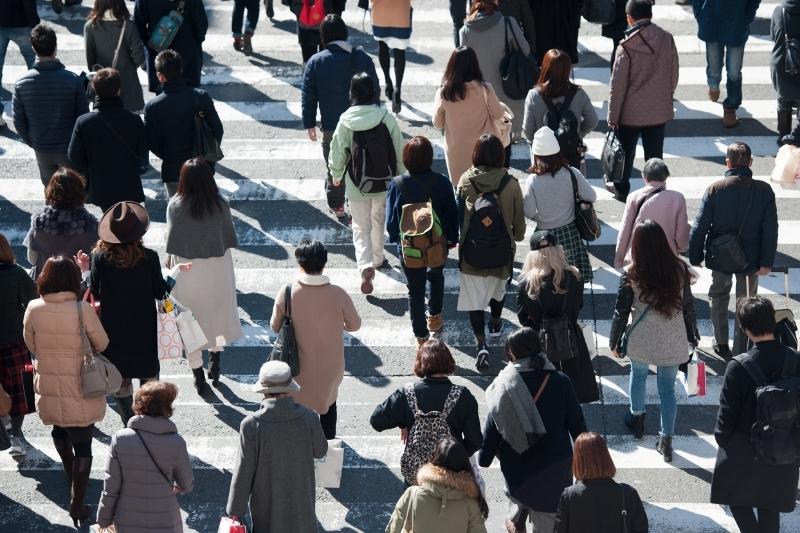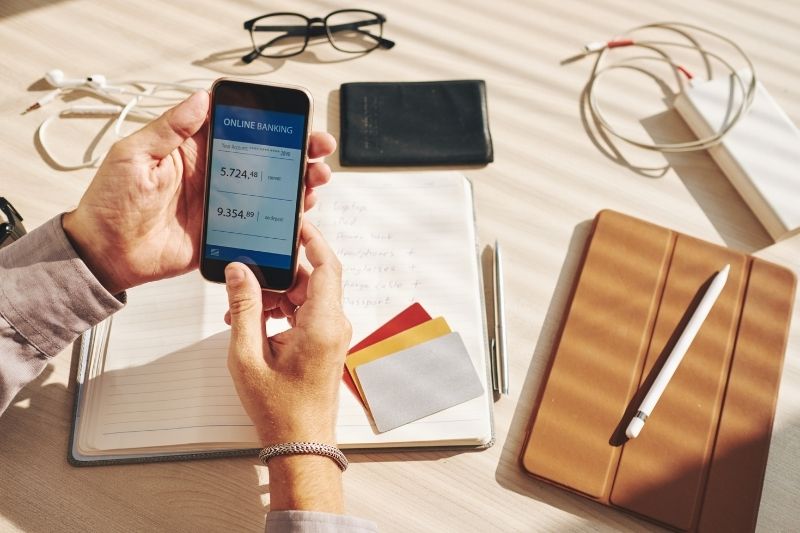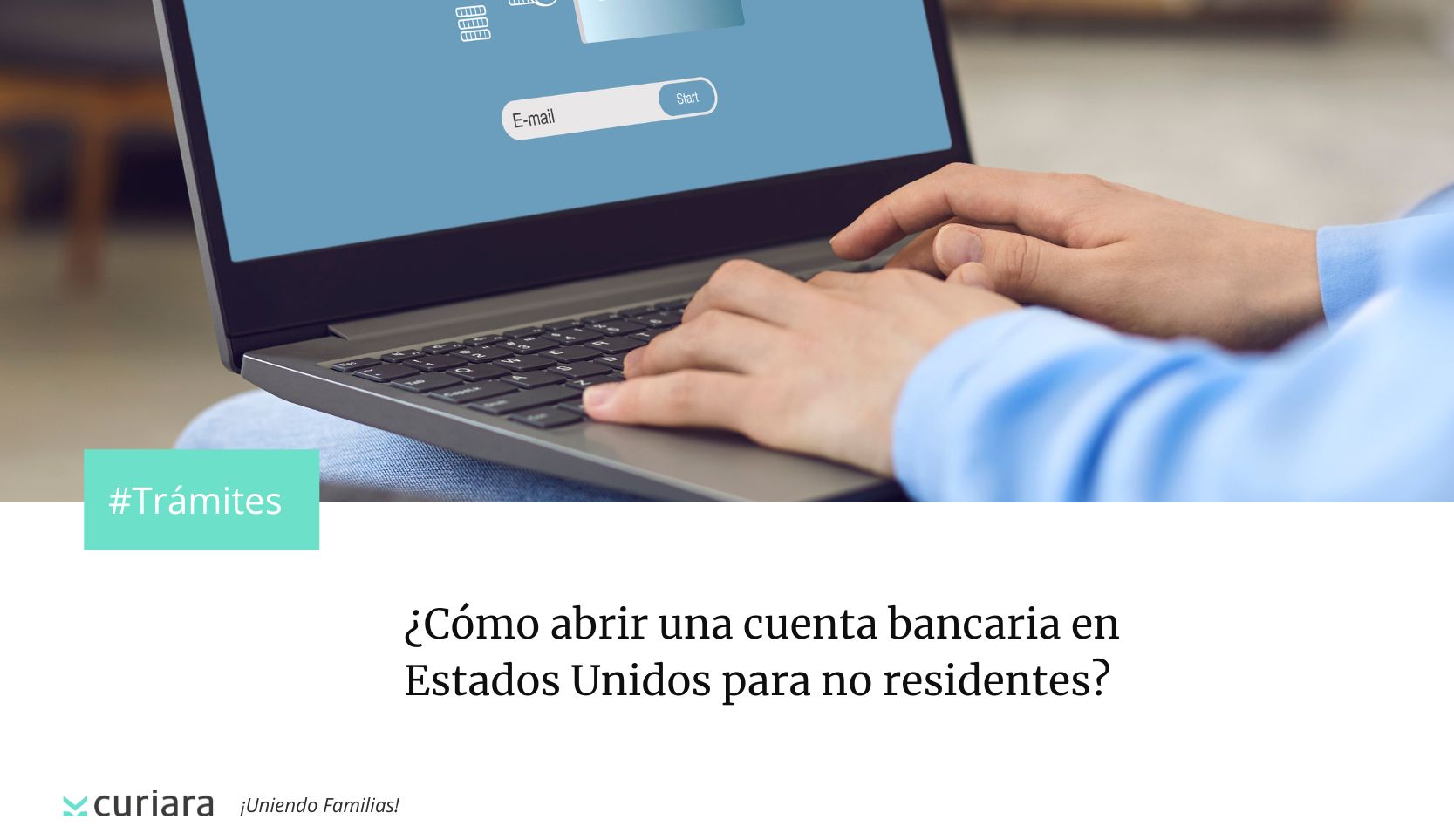Opening a bank account in the United States for non-residents may seem like a complicated task, especially if you are Venezuelan and far from home.
However, although the traditional banks in the U.S. usually require a resident to access their services, today there are alternatives that allow overcoming this barrier.
We know that, when emigrating, the financial situation can be a challenge, and having a dollar account is essential to realize the following goals payments, receive transfers and manage your money efficiently.
In this article, we explain how you can opening a U.S. bank account for non-residentsYou are not alone in this process! We will guide you step by step so that you can have access to a U.S. account.
Who are considered non-residents of the United States?

When we talk about being "non-resident" at United StatesIn this regard, it is essential to understand how the U.S. government defines it, especially with respect to the tax laws. This term can be a bit confusing, but let's break it down so that it can be clearly understood.
What does it mean to be a "non-resident" under the tax laws?
In simple terms, it is considered "non-resident" to any person who does not have the right to live permanently in the United States. This includes those who do not have a Green Card (permanent resident card) nor a conditional residence permit.
If you are Venezuelan and you do not have any of these documents, then, in order to tax purposes, you are a "non-resident". This means that you do not have the same tax responsibilities as someone who lives permanently in the country.
Differences between resident, citizen and non-resident
It is important to understand the differences between these three terms in order to avoid confusion:
- U.S. citizen: is a person who was born in the U.S. or has gone through the naturalization process. Citizens have all political and civil rightsThe country's citizens have the right to vote, live and work without restrictions within the country.
- Resident: a resident person has the right to live in the United States permanently. This may be due to a Green Card or a conditional residence permit. Residents have access to services such as social security and can work and study without limitations.
- Non-resident: are those who are not entitled to living permanently in the United States. This includes people who have temporary work visas, student or tourist visasbut who do not have a permanent resident status in the country.
Common cases of Venezuelan nationals in this category
Many Venezuelans who decide to invest in emigrate to the United States and seek a new life are in this category of "non-residents". Some of the most common cases include:
- International students: people who are move to the United States with a student visa (such as the F-1 visa) to study at U.S. universities or colleges, but who do not intend to stay permanently.
- Temporary workers: those who arrived with work visas (such as the H-1B or L-1) and who, although they can work in the U.S., do not have permanent resident status.
- Visitors and touristspersons entering the country with tourist or business visas (B-2 o B-1) and who have temporary permits to be in the U.S., but do not reside there continuously.
But, even if you are not U.S. residentThere are options to access a bank account in the country, which is key to manage your finances more efficiently, especially if you plan to receive payments or make transactions in dollars.
Can I open an account without being a resident?

Yes, you can. Opening a bank account in the United States without being a resident is entirely possible, although it is not always as simple as we would like it to be.
We know how difficult it is to start over far from home, especially when you come from a complicated situation like the one many Venezuelans are going through. That's why having a dollar account that gives you peace of mind and secure access to your funds is a necessity, not a luxury.
But this is where many encounter the first rock in the road: the traditional banks in the United States do not make it easy for non-residents. For them, the system is intended for citizens or people with defined immigration status. And what does that mean in practice? What are the requirements?
Requirements usually requested by traditional banks
- An official identity document: will usually ask you for a valid passport. If you need renew your passport in the United StatesIn our article we tell you in detail how to do it. Sometimes they also accept a consular cardbut this varies from bank to bank.
- U.S. tax number: This is where many get stuck. Most commonly, you will be asked for a SSN (social security number). If you don't have it, you may be accepted for a ITIN (taxpayer identification number for foreigners), but this involves making IRS paperworkThis takes time and is not always feasible if you have just arrived or are out of the country.
- An address in the United States: just any address is not enough. You must prove that you live there, with a utility bill (water, electricity, gas) in your name, or a rental contract. And if you do not yet have a permanent place to live, this can be a big obstacle.
- Legal immigration status: In some cases, the banks ask for a valid visa (work, study or residence). If you are still processing your papers or are in transition, you may not be allowed to open the account.
- Go in person to a branch office: This is one of the most complicated points. Many banks do not allow you to open accounts if you do not physically go there, which is a big problem if you are still you are outside the U.S. or you live in an area without many bank branches.
With so many obstacles, especially when you are starting from scratch in another country, It is completely normal to feel that this process is exhausting and, at times, frustrating. But you are not alone: many Venezuelans have gone through the same thing, and little by little they have found alternative paths. Courage!
New alternatives to open a bank account in the United States for non-residents

Fortunately, it is no longer mandatory to go through all the complicated procedures of traditional banks to be able to have an U.S. dollar account.
Nowadays, there are more modern alternatives designed for people like you, who are starting a new life outside Venezuela and they do not have all the requirements that traditional banks usually ask for.
These new digital platforms allow open 100% form accounts online, without the need to be physically in the U.S. and, in many cases, without the need to be physically in the U.S. and, in many cases, without a Social Security number. The whole process is done from your cell phone or computer, securely and quickly.
These options are especially designed for people who are outside the U.S. banking system, but who need to move, store or receive money in dollars, either to send remittances, get paid for freelance work or simply save with peace of mind.
Are you a little overwhelmed by all this? That's normal. But you are not alone. Many Venezuelans have gone through this process and, with patience, everything can be achieved.
Remember: having a dollar bank account is not only comfort, it is also a key step towards security, saving with confidence and building a new life with dignity away from home.
At CuriaraWe understand what it means to be far away from your country, but still have your heart set on being there. That's why, beyond being a platform for send money to VenezuelaWe want to be that silent support that accompanies you in every important decision.
Because we know that open an account, send remittances or simply be able to help your family.is part of staying present, even if you are far away. We are here to help you take those steps with more peace of mind and with the certainty that you are not alone on the road.
